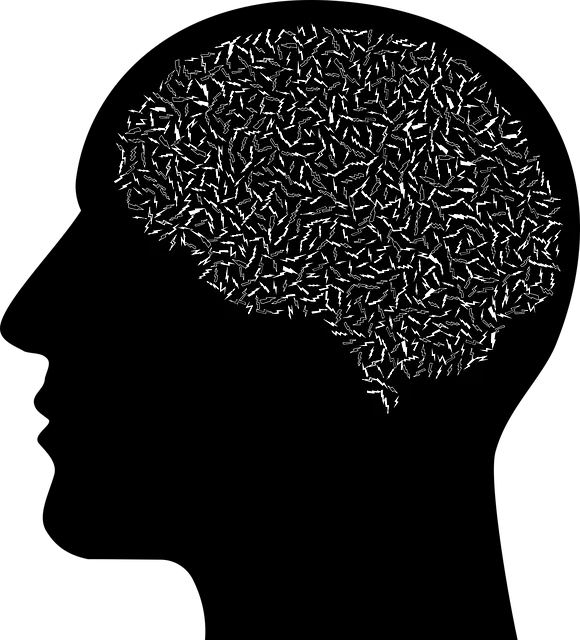Greenwood Village Kaiser Permanente mental health providers play a vital role in meeting the growing demand for accessible mental health services, driven by increased awareness and destigmatization. To address diverse cultural backgrounds, high-pressure work environments, and burnout risks, the organization offers comprehensive training in self-care, social skills development, evidence-based therapies, stress management, emotional intelligence, and burnout prevention. This strategic approach, measured through KPIs and continuous evaluation, empowers providers to deliver exceptional care, foster supportive communities, and improve patient outcomes while maintaining their own mental wellness.
In Greenwood Village, addressing mental health concerns has become a priority, especially with Kaiser Permanente’s leading role in training and supporting local providers. This article delves into the strategic design of a comprehensive mental health education program tailored for the community. We explore effective education strategies aimed at empowering mental health professionals and evaluating their impact. By examining implementation and continuous improvement, we highlight how such programs can transform care in Greenwood Village, ensuring better mental well-being for all residents with a focus on Kaiser Permanente’s involvement.
- Understanding the Need: Mental Health Awareness in Greenwood Village Community
- Kaiser Permanente's Role: Training and Support for Providers
- Program Structure: Effective Education Strategies for Mental Health Professionals
- Implementation and Impact: Measuring Success and Continuous Improvement
Understanding the Need: Mental Health Awareness in Greenwood Village Community

In Greenwood Village, there’s a growing recognition of the need for comprehensive mental health education, especially with the support of local institutions like Kaiser Permanente. The community has seen an increasing demand for accessible and understandable mental health services, driven by rising awareness and a desire to destigmatize discussions around psychological well-being. Many residents, particularly those served by Greenwood Village Kaiser Permanente mental health providers, are seeking practical tools and resources to manage stress, anxiety, and other common mental health challenges.
Greenwood Village’s diverse population presents unique opportunities and challenges for mental health education. Residents from various cultural backgrounds seek support tailored to their specific needs, highlighting the importance of inclusive Self-Care Practices and Social Skills Training. Moreover, with high-pressure work environments and busy lifestyles, burnout Prevention has emerged as a crucial component in maintaining overall mental wellness. Addressing these concerns through targeted educational programs can empower individuals to take charge of their mental health and foster a supportive community environment.
Kaiser Permanente's Role: Training and Support for Providers

Greenwood Village Kaiser Permanente takes a significant role in advancing mental health awareness and accessibility through its comprehensive education program designed for providers. The organization recognizes the crucial need for healthcare professionals to be equipped with the latest knowledge and skills to effectively support patients’ mental well-being. Thus, they offer extensive training sessions tailored to Greenwood Village Kaiser Permanente mental health providers, focusing on various essential aspects of mental health care.
These programs cover a range of topics, including Self-Care Routine Development for Better Mental Health, to ensure healthcare workers can maintain their emotional regulation and provide optimal support to patients. Additionally, Social Skills Training is incorporated to enhance communication and relationship-building skills, fostering a more supportive environment. By investing in its providers’ education, Kaiser Permanente creates a network of skilled professionals who are better equipped to navigate complex mental health issues, ultimately benefiting the community at large.
Program Structure: Effective Education Strategies for Mental Health Professionals

A well-structured mental health education program is essential for empowering Greenwood Village Kaiser Permanente mental health providers with the necessary tools and skills. The curriculum should be designed to cover a comprehensive range of topics, including but not limited to, evidence-based therapeutic techniques, communication strategies, and stress management practices. By incorporating interactive workshops, case studies, and peer discussions, the program facilitates hands-on learning experiences that enhance clinical proficiency.
Emotional intelligence, a crucial component of effective mental health care, should be a central focus. Training in emotional intelligence equips professionals with the ability to recognize and manage their own emotions while cultivating empathy and understanding towards clients. This fosters a supportive environment, strengthens therapeutic alliances, and ultimately improves treatment outcomes. Incorporating modules on self-care and burnout prevention further reinforces the importance of maintaining a healthy work-life balance within the stressful landscape of mental health care.
Implementation and Impact: Measuring Success and Continuous Improvement

Implementing a mental health education program requires careful planning and consistent evaluation to ensure its effectiveness and adaptability. Success measurement is a vital aspect that involves tracking key performance indicators (KPIs) specific to the program’s objectives. For instance, at Greenwood Village Kaiser Permanente, mental health providers can assess the impact of their initiatives by monitoring patient engagement in workshops and subsequent improvements in self-reported mental well-being. Surveys, feedback forms, and qualitative interviews with participants provide valuable insights into the program’s reach and perceived benefits.
Continuous improvement is fostered through data-driven decision-making. By analyzing participant responses and feedback, mental health providers can identify areas for enhancement, be it refining content to cater to diverse needs or incorporating new strategies such as Empathy Building Strategies and Confidence Boosting techniques. This iterative process ensures that the program remains relevant, engaging, and aligned with the evolving mental health landscape, ultimately contributing to improved public awareness campaigns and a more supportive community environment.
Greenwood Village’s collaboration with Kaiser Permanente has resulted in a comprehensive mental health education program, empowering local mental health providers. By combining awareness training with practical strategies, this initiative addresses the growing need for mental wellness support within the community. The successful implementation, as evidenced by continuous improvement and positive impact, underscores the importance of such programs in fostering healthier and more resilient individuals. This model can serve as a blueprint for other communities, highlighting the transformative potential of educating mental health professionals to better serve their patients.






